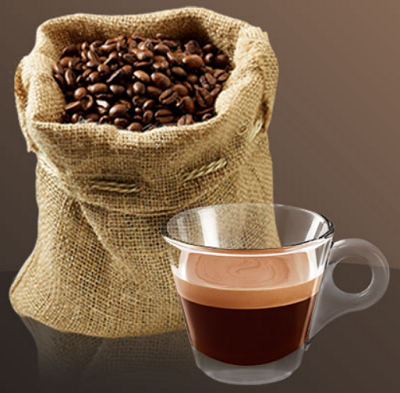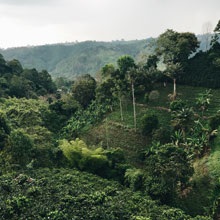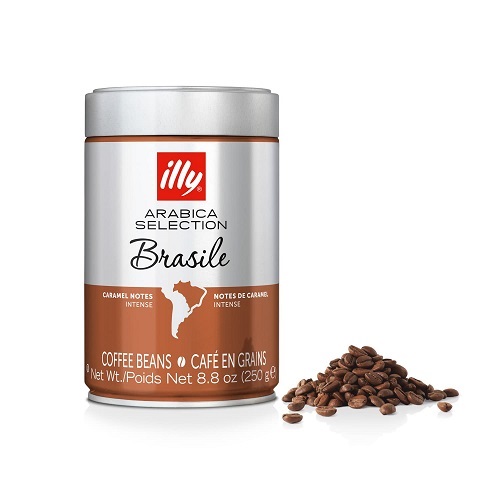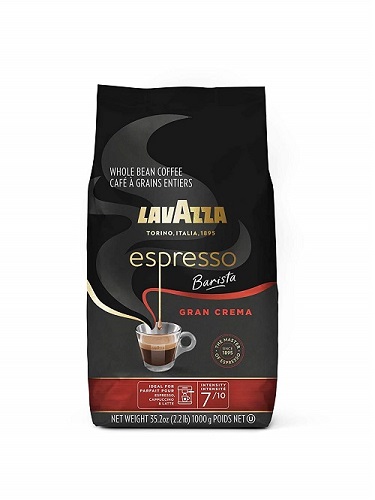Single origin coffee is sourced from a specific geographic region, such as a specific farm, region, or country. These beans are typically grown in specific regions within Central or South America, Africa, and Asia.

Single origin coffee typically has a distinct flavor profile that is unique to its specific location, while blended coffee is a mix of flavors from different regions.
Some people prefer the complexity and balance of flavor that blending can offer, while others prefer the distinct taste of a single origin bean.
What is single origin coffee?
Single origin coffee is coffee that comes from a single location, such as a specific farm, region, or country. This type of coffee is prized for its unique flavor characteristics, which are influenced by the soil, climate, and other factors of the place where the coffee is grown.

Single origin coffee is often considered to be of higher quality than blends, which are made by mixing beans from different locations.
Many coffee aficionados enjoy trying different single origin coffees to compare and contrast their flavors.
Here is our favorite single-origin coffee bean:

View Product on Amazon.com
What is blended coffee?
Blended coffee is a type of coffee that is made by mixing beans from different locations, rather than using coffee from a single source. The idea behind blending is to create a final product with a consistent flavor profile and specific characteristics.
Blending can be used to create a coffee with a specific flavor profile or to balance out the flavors of the individual beans. Some people prefer blended coffee because it offers a consistent flavor, while others prefer single origin coffee for its unique flavor characteristics.
Here is or favorite blended coffee bean:

View Product on Amazon.com
Single Origin vs. Blended Coffee
Single origin coffee is coffee that comes from a single location, such as a specific farm, region, or country. This type of coffee is prized for its unique flavor characteristics, which are influenced by the soil, climate, and other factors of the place where the coffee is grown. Single origin coffee is often considered to be of higher quality than blends, which are made by mixing beans from different locations.
Blended coffee, on the other hand, is made by mixing beans from different locations. The idea behind blending is to create a final product with a consistent flavor profile and specific characteristics. Blending can be used to create a coffee with a specific flavor profile or to balance out the flavors of the individual beans.
Some people prefer blended coffee because it offers a consistent flavor, while others prefer single origin coffee for its unique flavor characteristics.
You might also like to read: How to choose the best coffee beans
Final Thoughts
When choosing between single origin coffee and blended coffee, it ultimately comes down to personal preference. Single origin coffee is made from beans grown in one specific location and will have a distinct flavor profile unique to that region. It is often used to showcase the unique characteristics of a specific type of bean.
On the other hand, blended coffee is a mix of beans from multiple origins which creates a unique combination of flavors. Some people prefer the complexity and balance of flavor that blending can offer, while others prefer the distinct taste of a single origin bean. Try both and see which one you prefer or experiment with different blends to find your perfect cup of coffee.
FAQ’s
Q1: Is Arabica coffee “single origin”?
Arabica coffee is a type of coffee that is grown in many different locations around the world. Arabica coffee beans are considered to be of higher quality than the other major type of coffee beans, known as Robusta. Because Arabica coffee is grown in many different locations, it is not necessarily “single origin” coffee.
Single origin coffee, as the name suggests, comes from a single location. This could be a specific farm, region, or country. Single origin coffee is prized for its unique flavor characteristics, which are influenced by the soil, climate, and other factors of the place where the coffee is grown. If Arabica coffee is grown at a single farm, region, or country, then it could be considered single origin coffee. However, if the beans are sourced from multiple locations, then it would not be considered single origin.
Q2: Why is single origin coffee more expensive than blended?
Single origin coffee is often more expensive than blended coffee for a few reasons. First, single origin coffee is typically of higher quality than blended coffee. This is because the beans are sourced from a single location, rather than being mixed with beans from other locations. As a result, single origin coffee has unique flavor characteristics that are influenced by the soil, climate, and other factors of the place where the coffee is grown.
Another reason why single origin coffee is often more expensive is because it is often produced in smaller quantities than blended coffee. Single origin coffee is typically produced by smaller, specialty coffee companies, which have a limited supply of beans from a specific location. This means that the supply of single origin coffee is often smaller than the supply of blended coffee, which can drive up the price.
Finally, single origin coffee is often more expensive because it is considered to be a premium product. Many coffee aficionados are willing to pay a higher price for the unique flavor and quality of single origin coffee. In contrast, blended coffee is often considered to be more of a mass-market product, and is therefore priced accordingly.
Q3: Does single origin coffee have any health benefits?
There is no scientific evidence to suggest that single origin coffee has any specific health benefits compared to blended coffee. However, coffee in general has been shown to have some potential health benefits when consumed in moderation.
Coffee contains caffeine, which is a natural stimulant that can help to improve mental alertness and physical performance. It can also help to boost the metabolism and increase fat burning, which may aid in weight loss.
Coffee also contains antioxidants, which are compounds that can help to protect the body against damage from free radicals. Free radicals are molecules that can cause damage to cells in the body, and they have been linked to a number of chronic diseases. Antioxidants can help to neutralize free radicals and protect the body against their harmful effects.
While single origin coffee may not have any specific health benefits compared to blended coffee, both types of coffee can be enjoyed as part of a healthy diet when consumed in moderation. As always, it’s important to listen to your body and consult with a healthcare professional if you have any concerns.
You might also like to read: Health benefits of coffee
Q4: Examples of single origin coffees
Colombian coffee: Colombia is known for producing high-quality Arabica coffee beans with a well-balanced flavor profile. Colombian coffee is often described as having a nutty or chocolatey flavor with a mild acidity.
Kenyan coffee: Kenyan coffee is known for its bright and fruity flavors, with notes of berries and citrus. The coffee is grown at high altitudes in the fertile volcanic soils of Kenya’s Central and Western regions.
Brazilian coffee: Brazil is the largest producer of coffee in the world, and its coffee is known for its smooth, well-balanced flavor. Brazilian coffee is often described as having a nutty or chocolatey flavor, with a medium to low acidity.
Ethiopian coffee: Ethiopian coffee is known for its complex, floral flavors and aromas. The coffee is grown in the highlands of Ethiopia, where it is hand-picked and processed using traditional methods. Ethiopian coffee is often described as having a fruity flavor with hints of berries and citrus.
Guatemalan coffee: Guatemalan coffee is grown in the highlands of Guatemala, where the fertile volcanic soils and warm, humid climate provide ideal growing conditions. Guatemalan coffee is known for its rich, chocolatey flavor and smooth body.
You might also like to read: Tips for brewing a perfect cup of espresso at home